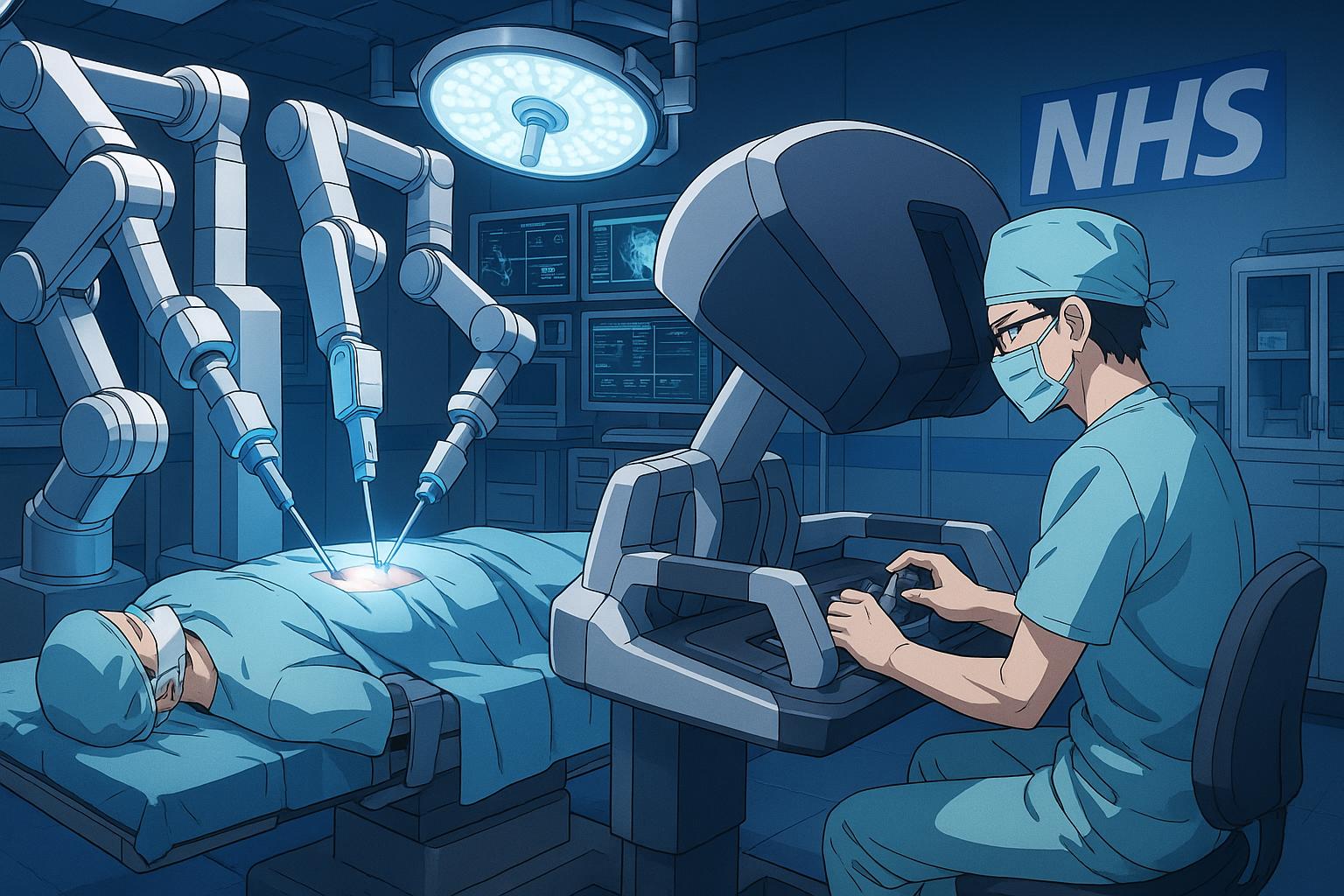The NHS in England is set to significantly expand its use of robotic surgery, aiming to enhance patient care and reduce waiting times. Currently, the NHS performs approximately 70,000 robot-assisted surgeries annually, but this figure is expected to leap to around 500,000 by the end of the next decade. By 2035, NHS officials anticipate that a remarkable 90% of all keyhole surgeries will be executed with the aid of robotic systems, marking a substantial increase from today's rate of one in five procedures.
Health Secretary Wes Streeting, who himself underwent robot-assisted surgery for kidney cancer, has been a vocal proponent of these innovative technologies, stating that such advancements will "transform the NHS." The positive outcomes associated with robotic-assisted surgeries are well-documented, with patients typically enjoying quicker recovery times and reduced hospital stays. The technology allows for greater precision and dexterity, enabling surgeons to manage instruments via a console equipped with a camera.
Robotic surgery has seen a marked expansion in its applications across various medical fields. For example, the Great Western Hospitals NHS Foundation Trust has recently adopted the Versius robot across multiple departments, including General Surgery, Urology, and Gynaecology. This investment underscores a regional commitment to integrating cutting-edge technology in order to enhance patient outcomes, as Chief Medical Officer Jon Westbrook highlighted the transformative potential of these advancements.
Additionally, initiatives at Bedfordshire Hospitals NHS Trust and Royal Devon University Healthcare NHS Foundation Trust illustrate the growing trend. Bedfordshire has introduced two da Vinci Xi robots, facilitating interventions in areas such as bowel and renal cancer, while Royal Devon has invested in new robots to tackle procedures like hernia repairs. Both trusts emphasise the benefits of fewer post-operative complications, leading to improved quality of life for patients.
In a similar vein, Guy's and St Thomas' NHS Foundation Trust made headlines as the first in the UK to implement the Hugo robotic-assisted surgery system from Medtronic. This system complements their existing robotic arsenal, enhancing their capability to perform minimally invasive procedures that promise shorter recovery times for patients. One patient, Rob George, expressed satisfaction with his experience post-prostatectomy, reinforcing the technology's positive impact on patient care.
The dedicated push for robotic surgery in the NHS is not merely about adopting new technology; it aligns with broader goals to alleviate pressure on healthcare services. NHS leaders are optimistic that increased efficiency and improved patient outcomes from robotic surgery could significantly contribute to reducing waiting lists, as stated by Sir Jim Mackey, the head of NHS England. He outlined plans to return to shorter elective waiting times by 2029, emphasising that expanding robotic surgery is a critical component of this strategy.
As more hospitals invest in robotic systems, the landscape of surgical care in the UK is poised for transformation. The Samworth Foundation's recent £1.5 million donation to Leicester Hospitals, aimed specifically at enhancing access to robotic-assisted cancer surgeries, exemplifies a growing recognition of the importance of this technology in modern healthcare. As hospitals across the country adopt these innovations, the NHS moves closer to realising its vision of a more efficient, patient-centred approach, leveraging the benefits of technology to enhance surgical care.
📌 Reference Map:
- Paragraph 1 – [1], [2]
- Paragraph 2 – [1], [2], [3]
- Paragraph 3 – [4], [5]
- Paragraph 4 – [6], [7]
- Paragraph 5 – [1], [4]
Source: Noah Wire Services
